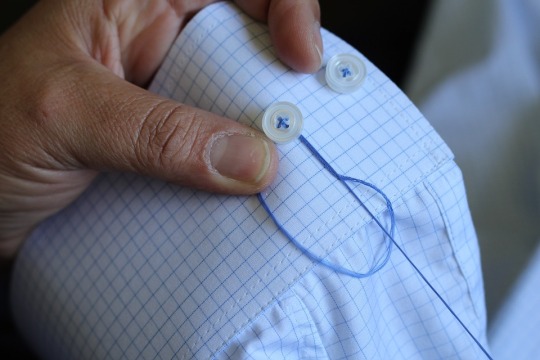on hiatus rn | mostly women's hockey but also podcasts Alice | she/her | Canadian | 21 | ace/queer | Co-host and producer of Unofficial Woho Radio
Don't wanna be here? Send us removal request.
Text
Scientists tagging birds with colored bands and accidentally making the tagged birds more appealing to mates is so funny. Imagine being abducted by aliens and they give you a gucci belt
72K notes
·
View notes
Text
simple task: needs to be done
my brain, rotating slowly like a single uncooked burger patty in the microwave:
55K notes
·
View notes
Link
“In conversation, do you have a tendency to jump in before the other person is done speaking? You might be an interrupter — or you could be what linguists call a “cooperative overlapper.”
Like interrupting, cooperative overlapping can be perceived as rude or dismissive in certain settings or among certain people, but the intent behind the behavior is anything but. According to Georgetown University professor of linguistics and author Deborah Tannen, who first introduced the term, cooperative overlapping occurs when the listener starts talking along with the speaker, not to cut them off but rather to validate or show they’re engaged in what the other person is saying.
“I coined the term to distinguish this type of talking-along, which encourages a speaker to keep going, from interruption, where a listener starts to speak while another is speaking in order to take the floor,” she told HuffPost. (She also uses terms like “enthusiastic listenership” and “participatory listenership” to illustrate this concept.)
A recent viral TikTok from @gaydhdgoddess — a Jewish ADHD writer and educator, according to her bio — has sparked a discussion online about cooperative overlapping and how communication styles vary across groups and cultures. In the video, she calls herself an “interrupt-y person,” but says this never posed much of an issue until she left the East Coast. After doing some research, she discovered that her tendency to interject before the other person is done speaking was actually part of a culturally Jewish style of conversation, common in the Northeast.”
801 notes
·
View notes
Text
okay maybe im reaching with this but did anyone else with adhd or neurodivergence in general ever get made fun of as a kid for having a really big vocabulary and get so confused because I didn't try to learn a lot of words?? i just did?? and sometimes you need to use a more specific word than what you normally would to get the point across so thats what i did??? and then after i grew up i realized it was because i was deathly afraid of being misunderstood (probably due to past experience) so i would strive to be as descriptive as possible and then get made fun of for my efforts nonetheless akskfjakkf i hate nt culture
#im not trying to sound Like That#it's just how I talk rip#this is what I get#for reading a novel a day#for all of middle school#adhd
50 notes
·
View notes
Text
why do i have to format emails like i’m writing a letter to my fucking husband on the frontlines of the long war. my dearest gregory. it has been too long since i’ve held in my embrace. o, that these travails shall lead us to one another again. my sincerest, fondest thoughts go with you in this, your hour of need. i have attached the requested documents in .pdf format. thanks!
94K notes
·
View notes
Text
A drunk guy at work kept pulling on the push door and couldn’t figure out why it wouldn’t open so he decided perhaps the bright red latch to the right of the door was the answer but the bright red latch was in fact the fire alarm.
67K notes
·
View notes
Text
the adhd urge to exhaustively organize and catalog things vs. the adhd immediate forgetting of where you put literally everything
45K notes
·
View notes
Text
ADHD/ASD and Manipulating the Finish Line
Doing stuff sucks. Whether it’s because of sensory issues or executive dysfunction, even the most basic tasks can sometimes feel daunting and insurmountable. The following are a few tips that I’ve found make it a little easier for me to reach the finish line, and I’m hoping they’ll be able to help a few of you out, as well.
“I need to have a shower. Why can’t I just do this? It’s so simple.”
This was the thought going through my head this morning. I have since had my shower, but it was not this sentence that finally got me to do it. I’m going to break down how I altered this thought to be more manageable.
First thing is to remove the self-berating language. If a finish line in a race was on fire and covered in spikes, I wouldn’t want to be moving toward it, so I remove the spiky language from my metaphorical finish line to make the task more inviting.
“I need to have a shower.”
As a sentence, it makes sense. However, the simplicity can be misleading. Instead of thinking of it as “having a shower”, let’s break it into more specific steps.
“I need to take off my clothes and get in the shower.”
“I need to rinse myself with water.”
“I need to lather shampoo in my hair. Then I need to use body wash on my body.”
“I need to rinse off all of the soap.”
Needless to say, this was too many steps and my brain wasn’t in the mood to cooperate. The finish line felt too far away, so it couldn’t muster up the motivation to even try to reach it. I could try to reason with it: “You know you’ll feel better once you’re clean”, “if you do it now you’ll get it over with”, but ADHD and ASD don’t always care about reason.
So I moved the finish line.
“I’m going to rinse myself off in the shower.”
My brain was fighting me on this, so I needed to compromise. Suddenly I was staring down only half the number of steps I had just a few minutes ago. And two, compared to the previous four, didn’t sound quite as bad. My brain and I had reached an agreement that wasn’t perfect, but was better than nothing.
(As a side note, changing “I need to” into “I’m going to” is also something I find helps me get motivated to actually follow through on a task, as well as actually saying the statement out loud. Your mileage may vary.)
The thing is… once I was in the shower, I was able to complete all four steps. I was already halfway there and my routine instincts kicked in to carry me the rest of the way. Will that always happen? Probably not. But in that case I’d still at least have done a partial job.
Sometimes, just getting started really is the hardest part.
I’ve used a similar strategy with other tasks, as well. “I need to do the dishes” became “I’m going to wash a fork”. Once I had the dishcloth in my hand, I realised it would be way more efficient to wash multiple forks at once, and once those were done, I already had a soapy dishcloth ready so I did a few plates, too.
Sometimes, even the modified finish line ends up being too much. This morning I told myself I’d do a workout just for the duration of a 4-minute song. By the time I was 3 minutes in, I decided I was done. And hey, that’s still three more minutes than if I had done nothing.
Which leads me to my final point: always celebrate the little things. Because for us, they aren’t always so little. Each accomplishment, no matter how small it might seem on the outside, is a testament to our effort, perseverence, and ingenuity, and that deserves to be acknowledged. And the next time a BIG task comes up, you’ll have a wall of mental ribbons and medals from all your previous finish lines telling you “you can do this!”
5K notes
·
View notes
Text
Resources for Mending Clothes

We toss out over 80 pounds of textiles each year. These textiles are often made of plastic materials (polyester, nylon), made in unethical conditions, dyed with harsh dyes that often get put into the rivers, etc. Even a single cotton shirt releases carbon emissions and uses tons of water.��
So the best thing to prevent the unsustainable growth of the fashion industry is to make sure that your clothing lasts as long as possible. To do so, mending clothing is a must. So here are some resources to help you learn how to do various things, such as sewing a button, to tailoring clothes, or even upcycling old clothing into new styles.
* How to sew on three different types of button
* How to hand sew on a patch on a torn pair of jeans
* How to sew up a hole in an old shirt
* How to sew a simple T-shirt
* How to upcycle old clothing into new clothing
* More upcycle and sewing techniques
* How to repair a damaged sock
* How to do an invisible stitch
* 3 different stitches to work with for different results
* How to make a T-shirt smaller so it fits you better
* How to make repairs to your shoes
These are just a few of the things that you can do in order to make sure that your clothing lasts for a long time. Nobody wants to keep buying new clothing, as it is expensive and wasteful.
So making alterations to your clothing, or fixing small holes hen you see them can be hugely beneficial to your wallet, to garment workers, and to the environment in the long term.
106K notes
·
View notes
Text
*me making my seventh tea / coffee of the day* maybe this little beverage will motivate me to finish my work
46K notes
·
View notes
Text
So uhhhhh I think I might need some help managing this whole "ADHD" thing
Genuinely though, I'm looking for helpful stuff on chronic procrastination and ADHD because this is getting bad
4 notes
·
View notes
Text
why do neurotypicals always assume there’s an ulterior motive behind “i don’t know.” bestie my mind is simply empty <3
63K notes
·
View notes
Text
queer is a gender, sexuality, romantic orientation, political alignment, and mission statement, babey
151K notes
·
View notes



